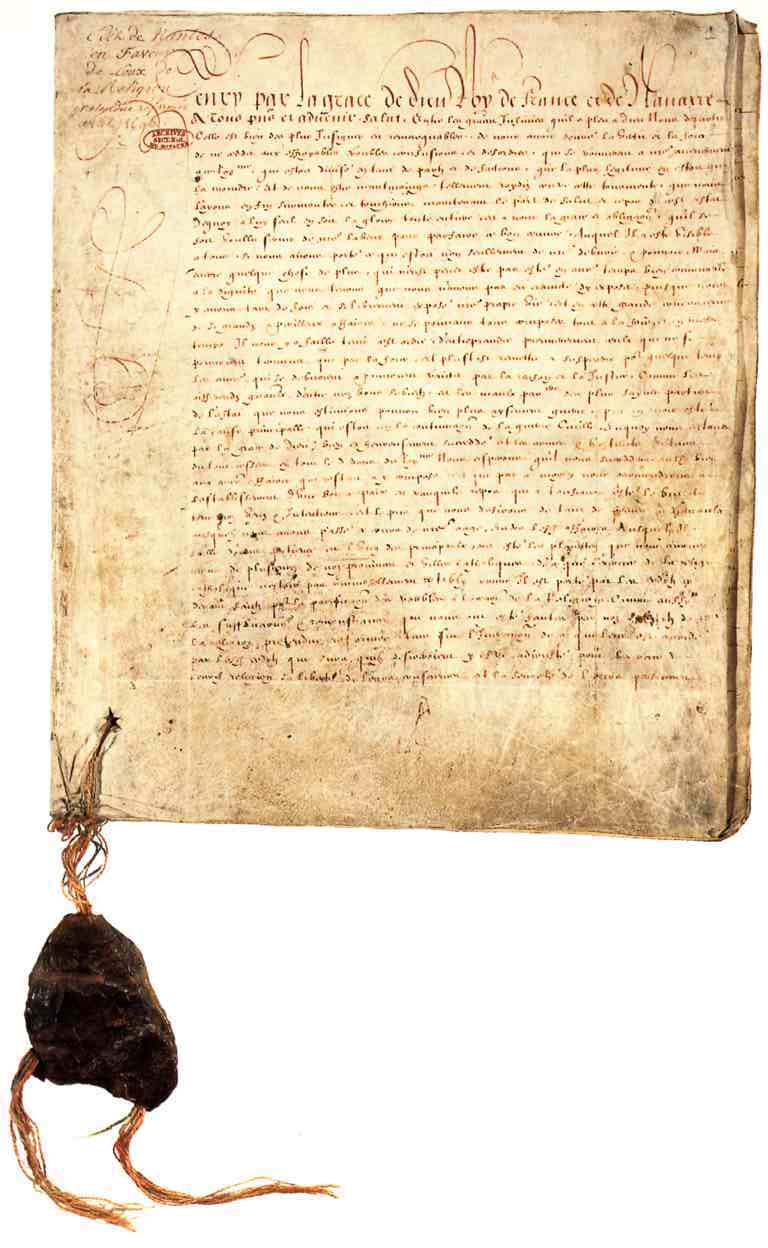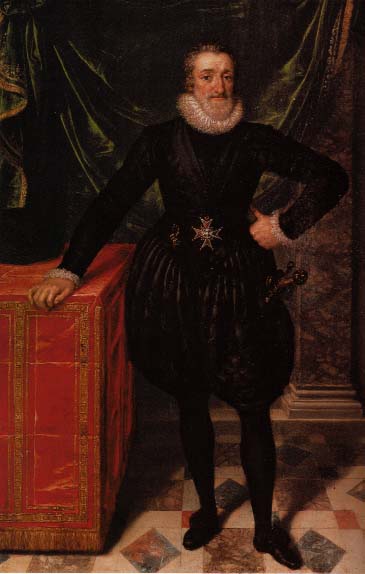Edict of
Nantes (1598)

April 13, 1598 decree promulgated at Nantes by
King Henry IV to restore internal peace in France, which had been torn by
the Wars of Religion; the edict defined the rights of the French
Protestants (see Huguenots). These included full liberty of conscience and
private worship; liberty of public worship wherever it had previously been
granted and its extension to numerous other localities and to estates of
Protestant nobles; full civil rights including the right to hold public
office; royal subsidies for Protestant schools; special courts, composed
of Roman Catholic and Protestant judges, to judge cases involving
Protestants; retention of the organization of the Protestant church in
France; and Protestant control of some 200 cities then held by the
Huguenots, including such strongholds as La Rochelle (see Rochelle, La),
with the king contributing to the maintenance of their garrisons and
fortifications. The last condition, originally devised for an eight-year
period but subsequently renewed, was to serve as guarantee to the
Huguenots that their other rights would be respected; however, it gave
French Protestantism a virtual state within a state and was incompatible
with the centralizing policies of cardinals Richelieu and Mazarin and of
Louis XIV.
Source:
Revocation of the Edict of Nantes (1685)
Impact of the Edict of Nantes on St. Quentin
|


